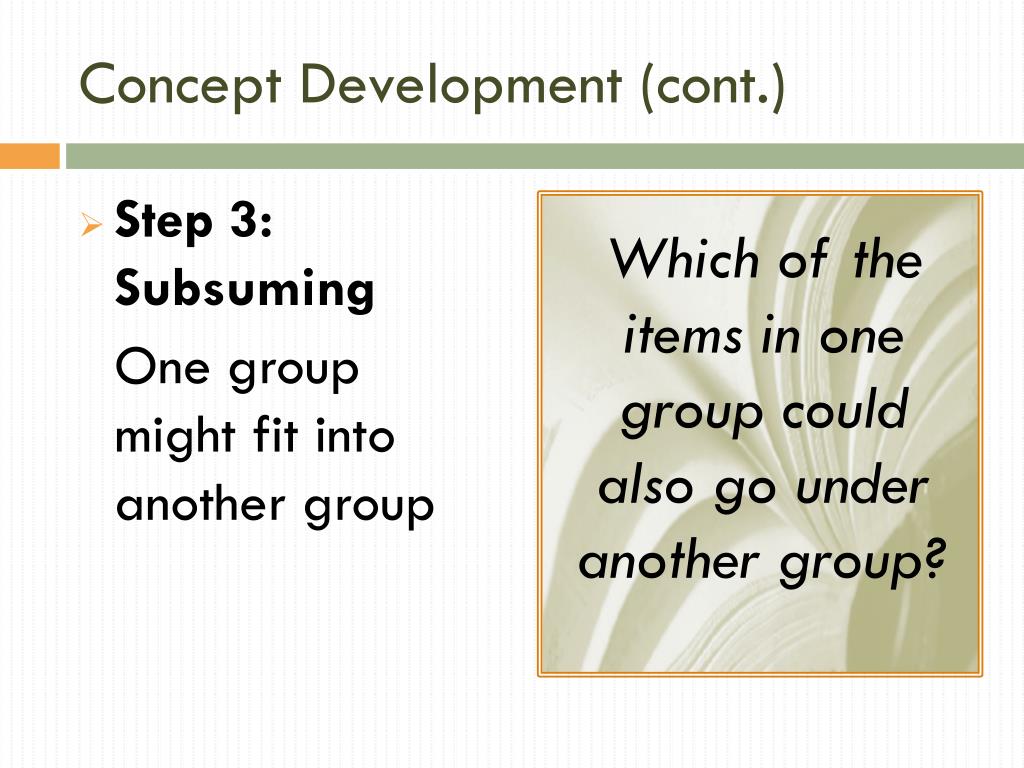

Many of those same factors likewise would seem to explain ISIS’ focus on Tunisia in carrying out several dramatic terrorist attacks in 2015-2016. Progress has been made to address several of these matters, but not all, and almost certainly not in a sustainable manner.
#GROUP SUBSUME REGROUP TABA SERIES#
As Crisis Group’s earlier report on ISIS, Exploiting Disorder, laid out, reasons for ISIS’ success in some arenas and failure in others defy generic explanations.īut its ability to recruit in these countries suggests a series of factors that gave rise to a more conducive environment: a demand for a quasi-revolutionary, anti-establishment discourse and practice, especially among young people who blame their relative deprivation on structural injustice (chiefly Tunisia) a security apparatus in disarray (Libya and Tunisia) the ascent and subsequent reining in of a more political, pragmatic form of Islamism (Tunisia) the presence of pre-existing networks of a jihadist or militant variety (Libya, Tunisia and Morocco) and either lack of regional or international coordination or, worse, regional actors backing rival groups (Libya). That dubious distinction has prompted head scratching, as has to a lesser extent ISIS’s ability to recruit foreign fighters in neighbouring countries. To much of the outside world, Tunisia is known equally for its relatively successful democratic transition as for the fact that it boasts the highest ratio per capita of people who have joined ISIS to fight outside their country. In this sense, and while ISIS does not consider the Maghreb its main arena for any of those three forms of activity, how it performed in the region, and how states reacted to its rise, tells us a lot about the organisation. Its operations in the Maghreb showcase ISIS’s three principal functions: as a recruitment agency for militants willing to fight for its caliphate in Iraq and Syria as a terrorist group mounting bloody attacks against civilians and as a military organisation seeking to exert territorial control and governance functions. While explaining the reasons for ISIS’ performance in different theatres is inexact and risky science, there seems little question that ending Libya’s anarchy and fragmentation improving states’ capacities to channel anger at elites’ predatory behaviour and provide responsive governance treading carefully when seeking to regiment religious discourse and improving regional and international counter-terrorism cooperation would go a long way toward ensuring that success against ISIS is more than a fleeting moment. But many factors that enabled ISIS’s ascent persist. The pool is drying up, to a point, and the caliphate’s Libyan province is no more. Those countries possess two unwanted claims to fame: as a significant pool of ISIS foreign fighters and, in the case of Libya, as the site of ISIS’ first successful territorial conquest outside of Iraq and Syria. This is true for the four countries of the Maghreb covered in this report, Algeria, Libya, Morocco and Tunisia, which constitute a microcosm of ISIS’ identity, trajectory and shifting fortunes to date. The Islamic State (ISIS) is in sharp decline, but in its rout lie important lessons and lingering threats.




 0 kommentar(er)
0 kommentar(er)
